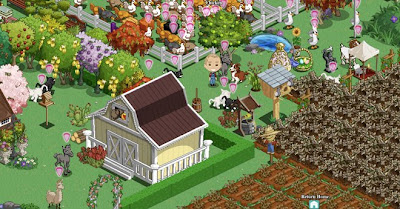There are currently 4.023 billion mobile phones connected globally with the world population of 6.75 billion people. That's 0.596 phones per capita (per person). It (roughly) means that more than a half of the world population owns a mobile phone. Let's dig it.
More people have access to mobile phones in India (543 million), than to adequate sanitation (366 million) (UN, 2010).
China is a leading single country with the highest number of mobile phones connected - 547.3 million (with India being second). But lets put it in the context. Population of China is 1.31 billion people. So the estimate is 0.416 phones for a person.
Europe has 712.8 million mobiles connected. With population of around 593 million, we have 1.2 phones for a person. Even if you look at fine details, countries like Germany, Italy, France, UK, Poland, Spain or Ukraine have roughly between 1.1 - 1.5 phones per capita. So proportionally, we are leading, side-by-side with Russia (which has also around 1.3 phones per capita).
It's a big number. It means statistically every person in Europe has a mobile phone. Obviously, that's not the case, but number is still extremely high.
Mobile phone is becoming a body organ. You can now browse the net, watch TV, listen to radio (ok thats old school), geotagg the reality around you, direct yourself around any place (with GPS coverage), play complex games, shot photos and videos, book a tickets or restaurant with just few clicks. We are constantly connected. You go to the pub and you see 8 people sitting silently around the table, clicking their phones. They eventually come back to conversation, but every social pause will be an excuse to send a text or check/update Facebook/Twitter.
Mobile phone is becoming a body organ. You can now browse the net, watch TV, listen to radio (ok thats old school), geotagg the reality around you, direct yourself around any place (with GPS coverage), play complex games, shot photos and videos, book a tickets or restaurant with just few clicks. We are constantly connected. You go to the pub and you see 8 people sitting silently around the table, clicking their phones. They eventually come back to conversation, but every social pause will be an excuse to send a text or check/update Facebook/Twitter.
But with all this attachment and expansion of mobiles there is still not that much innovation coming in a field, just redesign and recycling old solutions.
Sure, iPhone redefined touch interface and globalised common app use, and the trend is now evolving very quickly within mobile application development. But hardware development just froze in time, and mobile phones are becoming increasingly clunky. Phones from HTC, Apple, RIM, Nokia are loosing their key features - battery life, sustainability, simplicity of interface, cheapness, signal strength and toughness. And services are also going down with expensive contacts, confusing insurance policies, expensive roaming and data transfer rates. My iPhone can let me send the e-mail, but it will cost me £3/Mb from outside UK, and the battery dies on me after a day. Ten years ago I had Nokia 3310 which battery least for 5 days easily, with frequent use.
Sure, iPhone redefined touch interface and globalised common app use, and the trend is now evolving very quickly within mobile application development. But hardware development just froze in time, and mobile phones are becoming increasingly clunky. Phones from HTC, Apple, RIM, Nokia are loosing their key features - battery life, sustainability, simplicity of interface, cheapness, signal strength and toughness. And services are also going down with expensive contacts, confusing insurance policies, expensive roaming and data transfer rates. My iPhone can let me send the e-mail, but it will cost me £3/Mb from outside UK, and the battery dies on me after a day. Ten years ago I had Nokia 3310 which battery least for 5 days easily, with frequent use.
My point is that someone has to redevelop current concept and services of mobile phone. Software is there, but hardware and mobile networks lacks perspective. It's all iPhone-touch-screen-HTC-another-version-clones now, with competition on 'who get's bigger OLED screen' and whether O2 or Orange screws more users on data plans with "free" phone.
So...
I want good battery life (5-7 days, or 2-3 weeks like ebook readers!).
I want very simple interface (well, Apple kind of succeeded here).
I want just a few apps I use on the daily bases. Honestly, how many apps that you download from App Store you actually use regularly? 5? 8? I recon that's my personal estimate. And I have about 100 of them kicking around in my iTunes library - most of them just useless crap (for some of which I paid, looser...).
I want a quality calls (with faces, yes, they have it in Japan already, Apple) and good network coverage. I want cheap roaming rates and cheap data. Not for downloading YouTube movies, but to turn on simple GPS to find some cool bar when I'm chilling somewhere abroad.
I want simple and clear contract, that I can easily personalise and adjust according to my calling/traveling/data needs with free access to wi-fi hotspots around Europe (especially airports).
Is it really THAT much? ;-)
[All data in this post has been calculated and sourced using Wolfram Alpha]
[Image: Geek On Acid ©]







